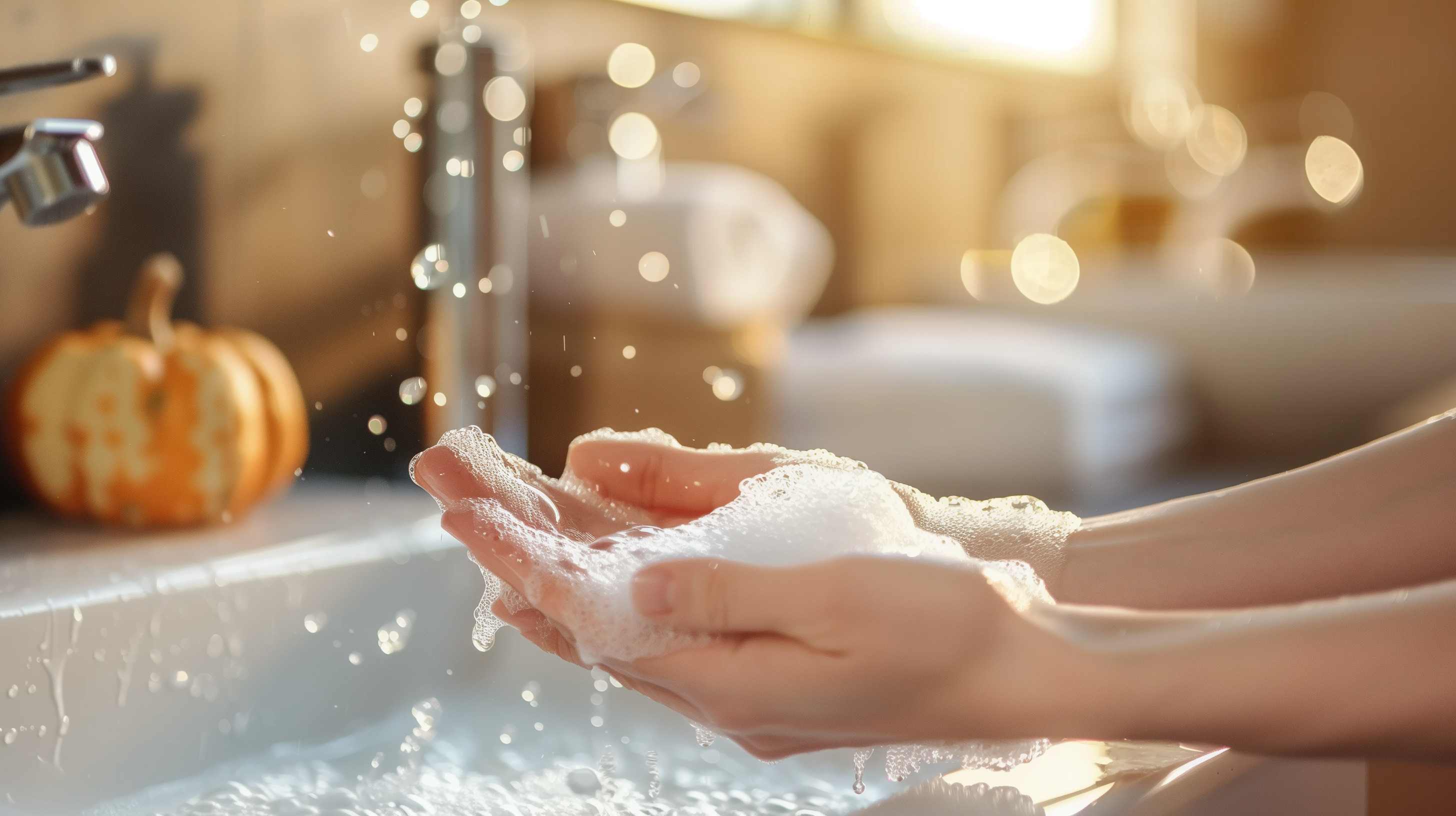When you're fighting chronic illness, autoimmune disease, or chemo, "it's just a cold" doesn't even cross your mind. What is so bothersome to everyone else can take you out of commission for weeks or hospitalize you. Your immune system is already at high RPM, and you adding a winter bug to the mix isn't bad - it's deadly.
I get it. Hypervigilance to stay healthy can be exhausting, especially when you're caught and recovering from colds and flu like a champion by all the humans that surround you. But here is what I have learned: adding some mindful habits to your regimen is a major plus in staying healthier in the midst of cold and flu season without making you a recluse.
These aren't life-makeover, multi-stage procedures. These are straightforward, science-based methods that actually work—and most of them you can start using today.
1. Master the Skill of Hand Hygiene
This is a no-brainer, but there does exist the correct hand-washing method which requires "more than a splash." It takes 20 seconds or so of warm water and soap—the amount of time it takes to sing "Happy Birthday" twice, if you're playing the timer trick.
The trick is to look for it between your fingers, under your fingernails, and on your wrists. Those are areas that most will miss, and that's exactly where the germs want to party.
If soap and water can't be had, keep a small bottle of alcohol-based hand sanitizer. The one with at least 60% alcohol is actually more effective against viruses than some antibacterial soaps.
2. Practice Strategic Masking
Masks aren't a pandemic trend—they're an easy remedy for anyone who wishes to provide a second line of protection against respiratory illness germs. The most fantastic thing about wearing masks is that it's two-directional: it keeps other people's germs away from you and shields other people in case you're becoming sick.
Attempt to wear one in doctors' waiting areas, crowded supermarkets, or public transport. You don't necessarily need to go everywhere wearing one, just where you'll be around lots of ill people or poor ventilation.
3. Make Your Mucous Membranes Happy
This sounds bizarre, but hydration does not always equal drinking water; drying out your nasal membranes and mucous in your throat wet protective barriers is acceptable also. If your membranes do become dried out, they are not as good at filtering out and flushing out viruses.
Stay hydrated during the day and not drink lots of liquid in one sitting. A refillable water bottle makes it easy for you to do so, especially if you'll be staying indoors during the heat when conditions are very drying.
We make it easy to take your meds with your water, with our Take Your Meds Tumbler.
4. Use Immune-Boosting Supplements You Can Have Your Doctor's Approval (With Your Doctor's Approval)
Don't introduce anything new to your routine without first checking with your health care provider if you're already on immunosuppressive medications. Having been warned, there are a few supplements with some science to back them up to help with immune function:
- Vitamin D – there is strong evidence to ward off respiratory illness, especially if you're low (as most sick people are).
- Vitamin C – won't actually prevent you from getting colds, but will perhaps reduce them and make them less severe.
- Zinc – is immunostimulatory but will be downregulated when there's overproduction, so dosage is critical.
- Probiotics – are for healthy tummies, and as your tum is potentially 70% of your immunity, this is a link which must be noted.
5. Make Cough Surface Sanitizing a Routine
Your cell phone probably harbors more bacteria than a grimy but actual toilet handle. Door handles, light switches, computer keyboards, and steering wheels are a few of the other germ incubators we handle over and over and don't even know it.
Wipe them clean occasionally with disinfectant wipes or alcohol solution. Takes two minutes but prevents days or weeks of illness.
6. Opt to Avoid Tight Groups
You don't have to be a recluse, but being selective about where and when you place yourself in the thick of a crowd definitely can lower your risk. Airports, airplanes, concerts, and busy shopping malls are all danger zones.
If you can't avoid them entirely, double or triple your guards: mask up, wash your hands often, and disinfect what you'll be touching (airplane armrests and tray tables, for example).
7. Sleep as Medicine
Your immune system does some of its most important work while you're sleeping. Not sleeping repeatedly actually makes the immune system weaker, so you'll be more likely to catch every bug that's going around. So stay home, curl up in our blankets, and get some sleep!
Autumn's shorter days can potentially be an advantage in this case, with sunsets coming sooner in the evening naturally facilitating earlier, more circadian-rhythm-friendly bedtimes. Building soothing evening routines with cozy attire like our Rest Day Socks and warm drinks can help make winding down more feasible.
8. Purify Your Indoor Air
A quality HEPA air cleaner will do a marvelous job of eliminating viruses and bacteria from indoor air. This is particularly convenient if there are others in the household who are bringing in germs from work, school, or elsewhere abroad outside the home.
Using a humidifier when air is dry keeps nasal passages open and from dehydrating and losing efficiency at filtration and catching germs prior to infection having a grip.
9. Practice Setting Boundaries Without Guilt
This is toughest for most, but essential: you can preserve your own health intact by refusing physical contact when you do not want it.
A plain old "I'm being super careful about germs at the moment" will suffice for all. Your loved ones will be understanding and will respect your boundaries. And if they're not, then more than likely they're someone whose advice you shouldn't concern yourself with.
Avoid people specifically that were just sick. I personally avoid anyone that had a GI bug for 14 days because sometimes they send me to the ER.
10. Use These Secret Defense Tactics
- Salt water gargles really cut viral load in your throat if you catch it early enough. Gargle for 30 seconds using half a teaspoon of dissolved salt in warm water.
- Nasal rinses with saline solution flush out allergens and germs before they get a chance to settle in. You can buy pre-mixed saline sprays or, if you're an adventure-seeker, try a neti pot.
- Good ventilation reduces indoor germs in the air. Open the window, a few minutes a day, depending on the weather, and that will do the trick.
The Mental Health Piece
Never talked about enough is the stress that comes with being healthy but lacking a healthy immune system. It is draining to have to constantly figure out risk and decide what is safe.
Remember you can't have complete protection, and trying to keep all exposure from taking place isn't good for you, either. Stress really suppresses immune function if you do it chronically, so being careful with having a life as normal is the answer.
Try your best, accept what can't be avoided, and don't step on broken glass if you do get sick anyway even though you were careful. Germs occasionally win despite anything you can do, and that is not anyone's fault.
Making It Sustainable
The single most significant aspect of any prevention plan is that it will have to be sustainable. If your behavior is so convoluted or restrictive that you can't keep up with it, then it will never work for you in the long run.
Start with a couple of things that you think you can do and build from there. Maybe it's carrying hand sanitizer with you and being more diligent about wiping down surfaces. Maybe it's taking vitamin D and establishing sleep habit in order.
Incremental small steps work better than giant, sweeping gestures that you give up on within weeks.
The Bottom Line
Flu and cold season does not necessarily mean staggering around in terror, though, if your immune system can use a little extra TLC, it just makes sense to do so. It doesn't have to be a matter of living in a bubble of sterility—it is about tipping the odds in your favor without necessarily putting life on hold.
These are all most effective when combined, as opposed to individually. Hand washing + sufficient sleep + deliberate masking = more than one protection by itself.
Most importantly, remember that paying attention to protect your health is not paranoia or discretion—it's smart self-care. You and only you know your body and your risk factors. Listen to that little voice inside and do what you think is best for your situation.



Fall Light Science: How Autumn Days Could Re-Set Your Spoonie Sleep Cycle
The Autoimmune Patient's Comforting Fall Drinks Guide without a Sugar Crash